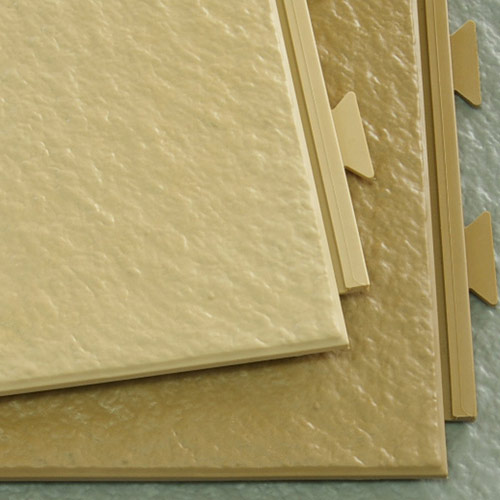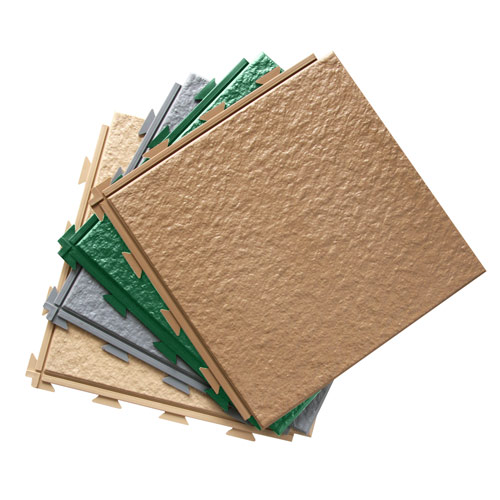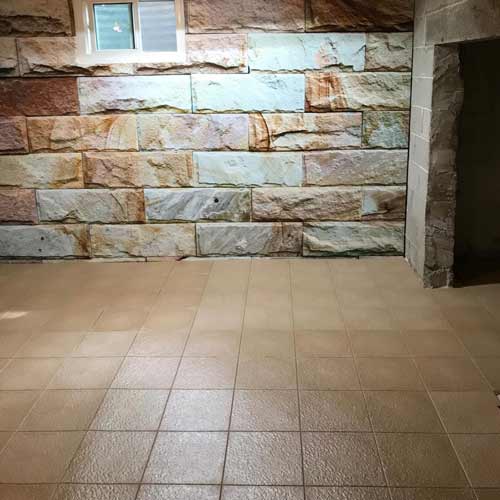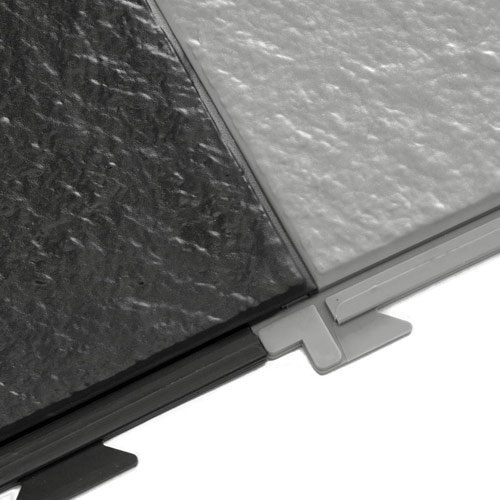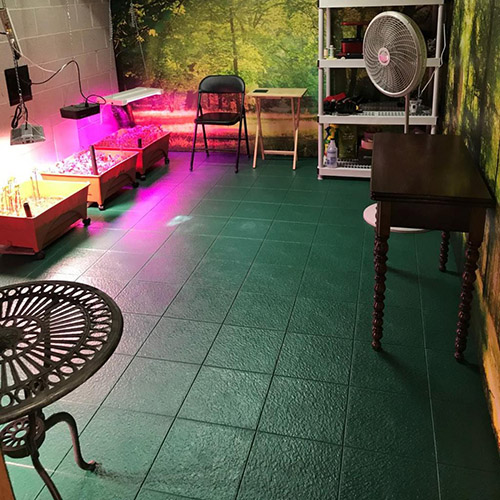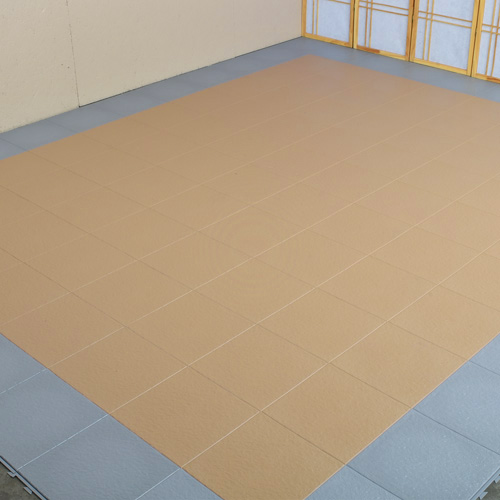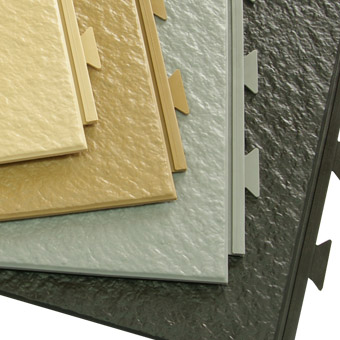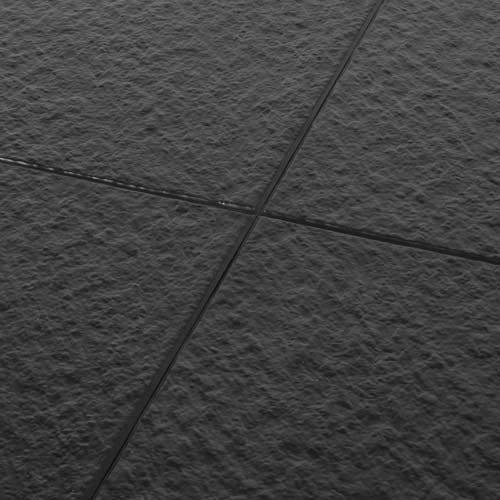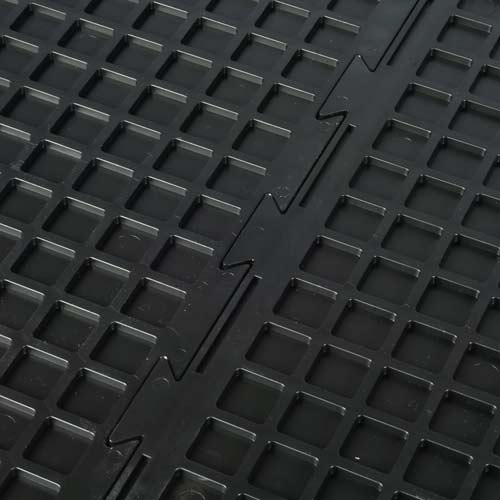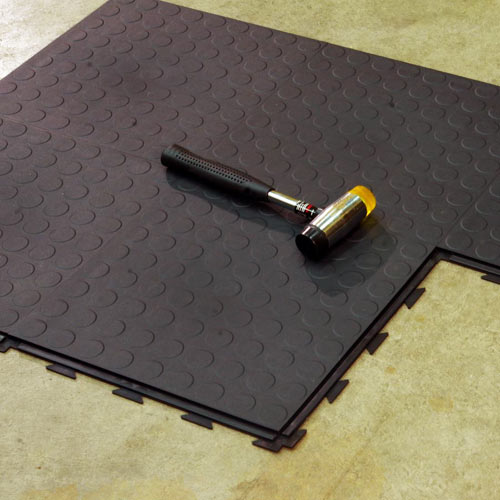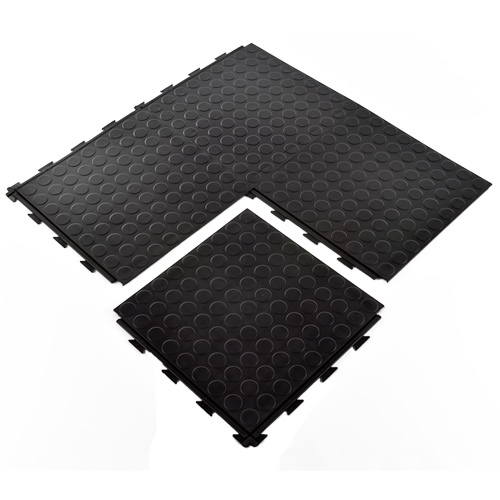PVC Tile Installation with Hidden Interlocks Made Easy
Related Product: Z Slate Floor Tile Colors 6 tiles 5 mm x 20x20 Inches - Disc
While there’s plenty to love about these tiles, one of their greatest benefits is their easy PVC tile installation.
How to Install PVC HiddenLock Tiles
PVC tile installation is easy, thanks to these interlocking tiles’ design. To start, you’ll need to install the tiles over a hard, flat surface, like concrete.To perform a wall-to-wall installation, gather a tape measure, straight edge, pen, and sharp utility knife. You’ll need to start in one corner and position the tiles so that their triangular tabs face out. As you work, keep all of your tiles so that they face the same direction.
When you add a new tile, lay a straight edge over the triangular tab of the first tile. Then, press or tap the triangular-shaped pockets down over the tabs. Using a rubber mallet can help with this. Once locked together, the tiles will lay flat.
Continue to connect the tiles, and be sure that the tabs always face out. Work your way to the opposite wall until you can’t fit any more full tiles. Once you’ve reached that point, you’ll need to measure the distance between the last tile and the wall. You’ll need to cut your last tile to be that size.
To cut tiles, mark the tile where you need to make the cut. Be sure to measure twice to verify that the cut is accurate, and double-check that the hidden interlocks are positioned correctly so that you’ll be able to connect that last tile. You’ll need to cut off a tab side when you fit the tiles against a straight wall.
When making your cut, use a straight edge to guide the knife. You can use a sharp utility knife and make repeated, shallow scores to gradually work your way through the tile.
Install that last tile, then repeat the process for the remaining tiles to finish your custom installation.
PVC Tile Installation in a Garage
These tiles are ideal for use in garage settings, since they’re resistant to most acids and oils. They can also withstand moisture. If you’re installing tiles in a garage, you can follow the same wall-to-wall installation process above. However, once you’re done, you should seal the tiles with a PVC floor sealer if they’ll come into contact with automotive tires. This step helps to protect the tiles and ensure that their finish will last.Additional Installation Tips
You don’t need to make your base perfectly level, since these tiles will conform to minor imperfections. However, keep an eye on where the tile seams connect. Significant level changes in these areas could cause the tiles to separate. If you face this problem, you might either use an underlayment or choose to glue down the tiles to ensure they don’t separate.These tiles can be dry laid, but there are a few different instances where you might want to glue them down. If you’ll be moving heavy objects, like furniture, over the tiles, gluing them down can add extra security. Adding an adhesive is also a good idea if you’ll be leaving the tiles in place permanently, or if you’ll be driving vehicles over them and turning tires while on the tiles.
These plastic tiles do establish tight connections, so if they’ll be used in light-duty areas or if you plan to disassemble them at some point, you won’t need adhesive. The tiles are designed to stay connected during normal use.
What is PVC Tile Flooring?
PVC tile flooring is made of a flexible, waterproof plastic. Options like the HiddenLock Slate Floor Tiles are highly durable and are backed by a 5-year warranty. These tiles are available in a variety of finishes and they deliver an upscale look with the benefits of a modular tile that’s easy to install, remove, and reinstall as needed.What is PVC Flooring Good For?
PVC plastic flooring is tough, durable, and highly versatile, so it’s suitable for both residential and commercial uses. These tiles can be installed in many different settings, including basements prone to moisture, laundry rooms where leaks might occur, workshops where a durable flooring is needed, entryways that will see wet, muddy shoes, and even in commercial entrances and events where you need a flooring that can withstand significant foot traffic. Strong enough to withstand the weight of vehicles and resistant to most oils and acids, these tiles are also a top choice for use in garages.Their affordable price and the fact that you can perform the entire installation yourself makes them a practical option for projects with tighter budgets, or situations where you’re looking for a DIY-friendly flooring solution.
